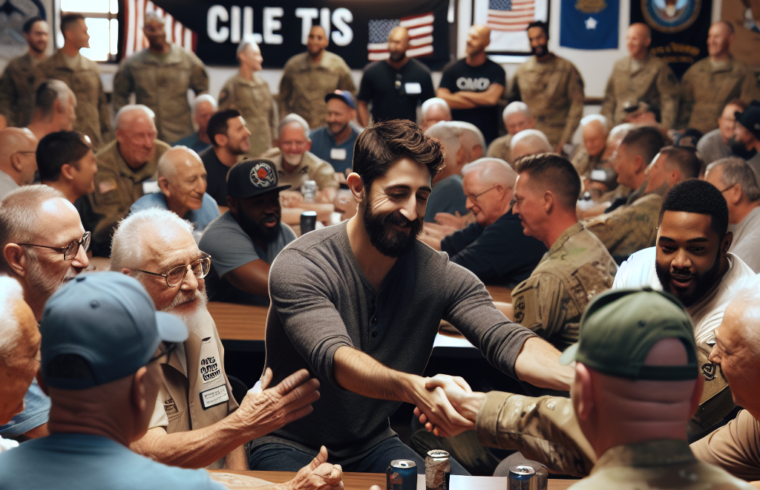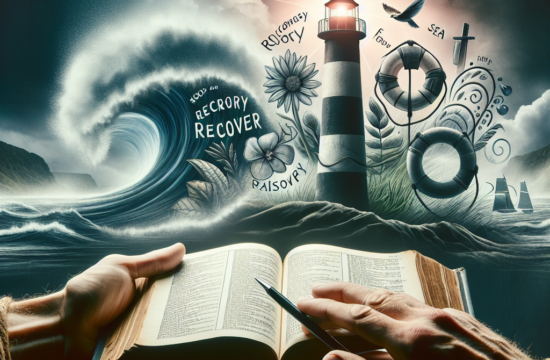==> Thank you for reading this post! Click Here If you are looking for support and Victory over PTSD.
Peer Support Groups
Description and Benefits
One of the most effective ways I’ve found to cope with PTSD is through peer support groups. These gatherings allow veterans to connect with each other in a safe and understanding environment. The shared experiences can be incredibly therapeutic, giving us a chance to talk about our struggles with those who truly get it.
By participating in these groups, veterans can vent their frustrations, share stories, and provide each other with practical tips on how to manage everyday issues. There’s something uniquely comforting about sharing a laugh or a cry with someone who’s walked in your shoes.
Plus, these peer connections can foster a sense of community that’s sometimes missing when we return to civilian life. It reminds us that we’re not alone on this journey, and those bonds can be life-changing.
Finding Local Groups
Finding a local support group can seem daunting, but there are resources out there that can guide you. I recommend starting with organizations like the VA or local community centers that often host these gatherings. You can also tap into online forums where veterans share information about local events.
When you find a group that fits, don’t hesitate to reach out. Contact the leaders and ask about the group’s focus and the kind of discussions they have. It’s important to feel comfortable with the group before diving in.
And if you can’t find a group nearby, consider starting one! Gather a few fellow veterans, and create a space to talk and support one another. There’s no blueprint to follow; it just needs compassionate hearts and willing ears.
Online Support Options
If you’re not able or ready to join a physical group, don’t worry—there are plenty of online support networks available. Virtual meetups have become really popular, especially in the aftermath of the pandemic. Websites and apps like Meetup or specialized forums for veterans can connect you with others facing similar challenges.
One fantastic thing about online groups is the convenience. You can join from the comfort of your couch, which can make it a lot less intimidating. Plus, the anonymity can encourage some people to open up more than they would in person.
However, always make sure to choose reputable platforms where safety and privacy are prioritized. Look for groups moderated by professionals who understand PTSD and can guide conversations productively.
Professional Counseling Services
Importance of Therapy
While peer support is invaluable, seeking help from professional counselors can be a game-changer. I’ve personally benefited from talk therapy, where I’ve learned coping mechanisms and strategies that are help me navigate daily life.
Working with a trained therapist allows you to delve a bit deeper into your experiences and traumas. They provide a structured environment where feelings can be processed without judgment. It’s a space designed for healing, and believe me, those sessions can be eye-opening.
Therapists can help you develop a personalized treatment plan based on your specific needs, whether it’s cognitive-behavioral therapy, EMDR, or another approach. There’s really no one-size-fits-all for PTSD, so having that tailored support can make all the difference.
Finding the Right Therapist
Choosing the right therapist is crucial! It might take a little time to find someone you click with, and that’s okay. I’ve had my fair share of fits and starts before I found my current therapist, who truly understands my experiences.
Make sure to check their credentials and look for someone specialized in trauma or PTSD. Many professionals offer a consultation session, and I highly recommend taking advantage of that to see if their approach vibes with you.
Don’t be afraid to ask questions! Finding the right fit can take time, but it’s one of the best investments you can make for your mental health.
Telehealth Options
With technology at our fingertips, many therapists are now offering telehealth services, which has been a blessing for many veterans. I’ve found that being able to have therapy from home reduces the stress of travel and allows for more flexibility in scheduling.
Telehealth platforms are often secure and user-friendly. A video call can feel just as personal as sitting in an office. Plus, if you’re in a remote area, it gives you access to a broader pool of therapists—basically, you’re not limited to your zip code!
Check with your insurance to see if they cover telehealth services, and explore multiple platforms to find one that you feel comfortable using. This option can be a real lifesaver when in-person visits are not feasible.
Community Resources
Local Organizations
Many communities have organizations specifically dedicated to supporting veterans. These can range from mental health services to social events designed to foster camaraderie among veterans. I’ve seen firsthand how these groups can really elevate our mental well-being.
Check out non-profits like the Wounded Warrior Project or local VFWs—often they have resources or programs that cater to PTSD support. Engaging in community activities can also help reduce feelings of isolation.
Getting involved at local events is not just about getting help; it’s about giving back, too. Volunteering can provide a sense of purpose and community connection, which are both so important in the healing process.
Veterans Affairs Resources
Don’t forget about the VA! They have a plethora of resources specifically designed for veterans struggling with PTSD. From specialized therapy programs to support hotlines, they’ve got your back.
Get Support and Help with Recovery! Visit us for more Information and Support
Utilizing VA services can also help you connect with fellow veterans who understand what you’re going through. These services are often tailored to our unique experiences as veterans, meaning they understand the nuances of what we face.
Be proactive about exploring what’s available—whether it’s through your local VA office or their website, make use of the resources designed to support you.
Support Hotlines
If you ever find yourself in immediate need, support hotlines can be a crucial resource. The National Veterans Crisis Line is a fantastic service available 24/7. The trained counselors on the other end know exactly how to help, and they’re just a call away.
Sometimes, it can feel daunting to reach out for help, but these hotlines can provide immediate relief and guidance. Just knowing there’s someone who understands can be a comfort.
Keep the number saved in your phone or written somewhere accessible—having that quick resource can sometimes be what you need to navigate tough moments.
Online Platforms and Resources
Veteran-Specific Forums
I’ve spent considerable time on veteran-specific forums, and I can honestly say they’ve been a lifesaver. These platforms are spaces where veterans can connect, share experiences, and exchange tips—everything from coping strategies to job opportunities.
It’s reassuring to know that there are others out there who understand what you’re experiencing. Conversations can extend into personal bonding, forming friendships that can last a lifetime.
Always remember to be cautious on these forums. While they can be a great source of support, it’s essential to protect your privacy and engage in discussions that foster positivity and healing.
Social Media Groups
Social media has the power to connect us like never before, and there are plenty of groups dedicated to supporting veterans. Facebook, LinkedIn, and even Reddit have robust communities focused on sharing resources and encouragement for those dealing with PTSD.
You can share your thoughts, seek advice, or simply vent when you need to. The diversity of experiences can provide a broader perspective on healing, which can be enlightening.
Just be sure to follow the group’s rules and maintain a respectful environment to encourage open and safe conversations.
Online Resources and Tools
Finally, there are a ton of online resources designed to help veterans manage PTSD. From apps that promote mindfulness and wellness to websites offering educational articles, it’s like having a toolkit at your fingertips.
Engage with content that resonates with you, whether it’s guided meditations, informative podcasts, or therapy-related videos. The idea is to discover what works best for your healing process and lean into those resources.
Moreover, many of these resources are free or low-cost, making them accessible to everyone. It’s all about finding those gems that can aid you in your journey toward healing.
Conclusion
So there you have it! Finding a support network for PTSD doesn’t have to be overwhelming. Whether it’s through peer groups, professional counseling, community resources, or online platforms, there are so many options available to veterans. I hope that by sharing my personal experiences and insights, you feel empowered to seek out the support you need.
Your journey is unique, so take your time to explore and find what resonates with you. Remember, you don’t have to walk this path alone—we’re all in this together!
FAQs
What are the benefits of joining a peer support group?
Peer support groups provide a safe environment where veterans can share their experiences and feelings with others who understand. This connection fosters emotional healing and community support.
How do I find a therapist specialized in PTSD?
Start by searching online directories like Psychology Today or contacting your local VA. Many therapists offer consultations, which can help you find the right fit for your needs.
What resources does the VA offer for veterans with PTSD?
The VA provides a range of resources including mental health services, support hotlines, and community programs aimed at helping veterans cope with PTSD.
Can online platforms really be effective for PTSD support?
Absolutely! Online platforms can provide immediate access to support and resources, fostering connections with others who share similar experiences, which can be incredibly helpful for many.
What should I look for in an online support group?
When choosing an online support group, ensure it’s moderated by professionals, respects privacy, and fosters a safe and supportive environment.













